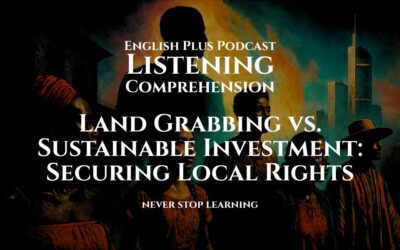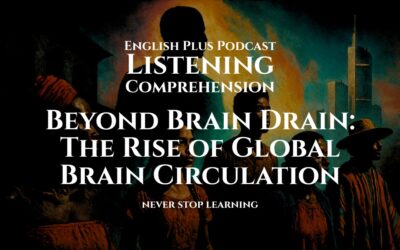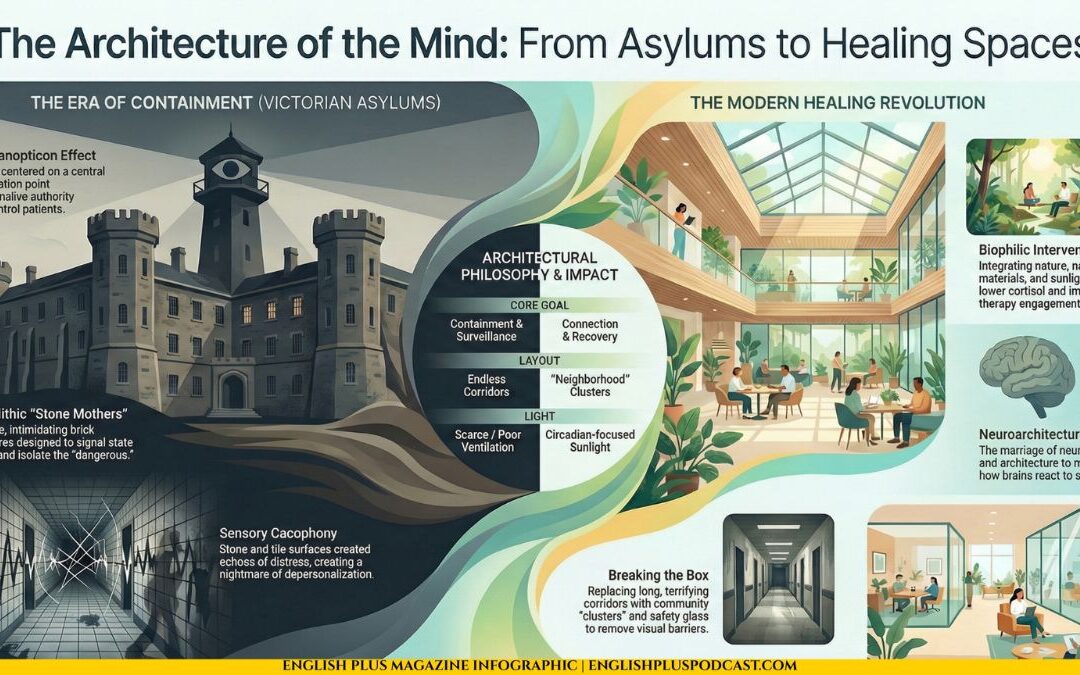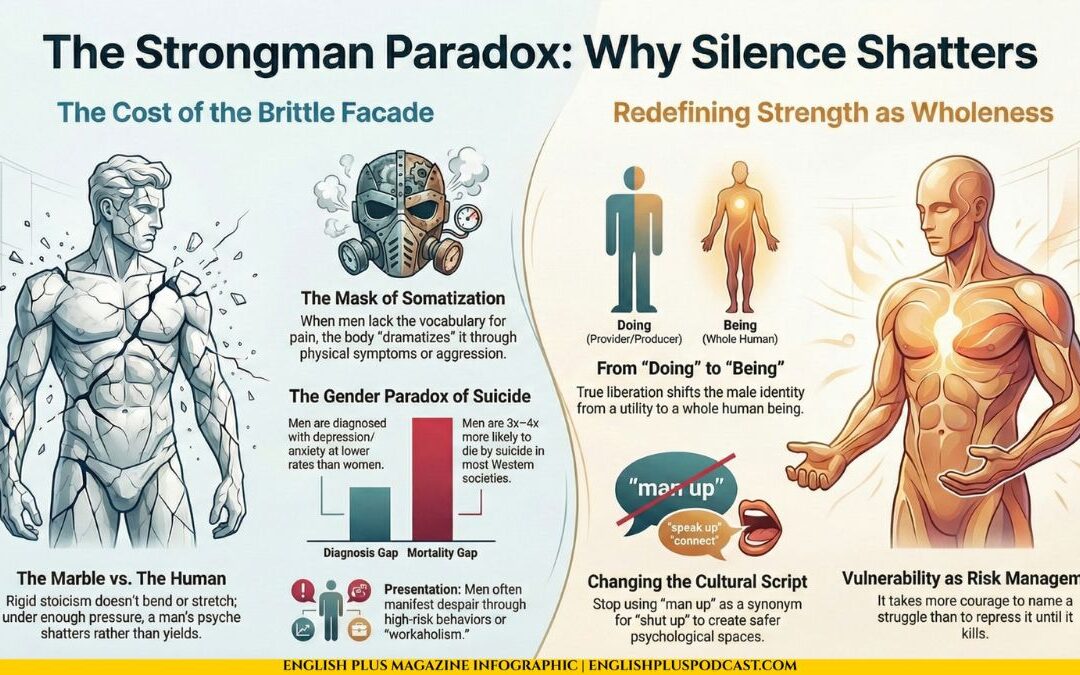Listen | The Role of Technology in Education
Listening Comprehension Quiz
Transcript: Please don’t check the transcript before you listen and take the quiz.
Good afternoon, everyone! Today, we’re diving into a topic that’s all around us but often taken for granted: the role of technology in education. Now, before we get into the details, let me ask you this—when you think of “education,” what comes to mind? Maybe textbooks, teachers, classrooms, or lectures, right? But think about how much that image has changed over the past few decades. Technology has revolutionized how we learn, teach, and engage with knowledge. Gone are the days when a chalkboard and a few books were the main tools in the classroom. Now, it’s all about interactive apps, online courses, smartboards, and even virtual reality!
So, how exactly is technology transforming education? Well, let’s start with access. Technology has made education more accessible than ever before. Imagine a student living in a remote village with limited resources. In the past, their educational opportunities might have been severely restricted. But today, with just an internet connection and a smartphone or computer, that student can access world-class lectures from universities like Harvard or MIT, take online courses, and even earn degrees. This kind of access was unimaginable just a few years ago. Technology is democratizing education, breaking down the barriers of geography and even cost in some cases.
Now, let’s talk about the classroom itself. Remember how traditional classrooms were? Rows of desks, a teacher standing in front of a blackboard, and students copying notes. It worked, but it was limited. Today, with tools like smartboards, tablets, and educational software, the classroom is a much more dynamic place. Teachers can use interactive simulations to explain complex topics, students can collaborate on projects in real-time, even if they’re on opposite sides of the globe, and everyone can move at their own pace thanks to adaptive learning technologies. This makes learning not only more personalized but also more engaging.
Have you ever used an app like Duolingo to learn a new language or taken an online course? If so, you’ve experienced firsthand how technology enhances the learning process. These tools allow us to learn when and where it’s convenient for us, turning commuting or waiting time into productive moments. Apps and platforms like these use gamification—turning learning into a game with rewards and progress tracking—which makes the process feel less like a chore and more like a challenge you actually want to complete.
But it’s not just about making learning more fun. Technology also plays a key role in making education more inclusive. Students with disabilities, for example, have more opportunities than ever before thanks to assistive technologies. Voice recognition software, screen readers, and adaptive keyboards help students who may struggle with traditional learning methods participate more fully in their education. And let’s not forget about how technology helps students with different learning styles. Some people are visual learners, others are auditory or kinesthetic. With technology, teachers can cater to all these styles, providing videos, podcasts, and interactive activities to ensure every student has the chance to succeed.
There’s another aspect of technology’s role in education that’s often overlooked, and that’s the role it plays in developing essential skills for the modern world. In today’s job market, skills like coding, data analysis, and digital literacy are in high demand. By integrating technology into education from an early age, students are not just learning traditional subjects—they’re also gaining the digital skills they’ll need to thrive in the 21st century workforce. And it’s not just about hard skills. Technology also encourages problem-solving, creativity, and critical thinking, all of which are crucial in today’s fast-paced, ever-changing world.
But of course, technology in education isn’t without its challenges. One of the biggest hurdles is the digital divide—the gap between those who have easy access to technology and those who don’t. Even though technology has the power to make education more accessible, not everyone has the same access to the internet, devices, or the training needed to use them effectively. So, while technology is opening doors for many, it’s also important to ensure that no one is left behind.
Another challenge is ensuring that technology is used effectively in the classroom. Just having fancy gadgets isn’t enough. Teachers need the training to use these tools in meaningful ways that enhance learning, rather than simply replacing traditional methods without any added benefit. It’s about finding the balance—using technology to enhance education while keeping the core values of teaching and learning intact.
In conclusion, the role of technology in education is transformative. It’s making education more accessible, more engaging, more inclusive, and more relevant to the modern world. But with this power comes responsibility. We need to ensure that technology is used wisely and that it benefits all students, regardless of their background. As we move forward, the challenge will be to continue innovating while also addressing the digital divide and ensuring that education remains a tool for empowerment for everyone. So next time you pick up your phone to learn a new skill or log into a virtual classroom, take a moment to appreciate just how far we’ve come—and think about how much further we can go.
Expand Your Vocabulary
- Revolutionize
Meaning: To completely change something, often in a way that is dramatic and improves how things are done.
Context: In the lecture, technology is said to “revolutionize how we learn, teach, and engage with knowledge.”
Everyday Use: You could say, “The internet has revolutionized how we communicate with people around the world.” - Accessibility
Meaning: The quality of being easy to approach, use, or obtain.
Context: The lecture discusses how technology has improved “accessibility” to education, allowing more people to engage in learning.
Everyday Use: If a building has ramps for wheelchairs, you could say, “The building has improved accessibility for everyone.” - Democratize
Meaning: To make something accessible to everyone, not just a privileged few.
Context: The lecture explains that technology “democratizes education,” meaning it helps make education available to people everywhere.
Everyday Use: You might say, “Social media has democratized the sharing of information, allowing anyone to post their ideas.” - Interactive
Meaning: Involving communication or action between two or more people or systems.
Context: The lecture mentions that “interactive simulations” make the classroom more dynamic.
Everyday Use: You could use it in a sentence like, “I love using interactive apps that let me practice languages by speaking and listening.” - Gamification
Meaning: The application of game-design elements in non-game contexts, like education, to make tasks more fun and engaging.
Context: The lecture highlights how platforms use “gamification” to make learning more enjoyable.
Everyday Use: You might say, “This fitness app uses gamification by giving me points and rewards for every workout I complete.” - Assistive Technologies
Meaning: Devices or software designed to help people with disabilities perform tasks they might find difficult or impossible otherwise.
Context: The lecture mentions “assistive technologies” like voice recognition software, which help students with disabilities participate in education.
Everyday Use: You could say, “Screen readers are an example of assistive technology that helps visually impaired people access digital content.” - Adaptive Learning
Meaning: A type of educational technology that adjusts the difficulty of learning material based on the student’s progress.
Context: The lecture describes how “adaptive learning” tools help students learn at their own pace.
Everyday Use: You might say, “This online course uses adaptive learning, so the lessons get harder as I improve.” - Digital Literacy
Meaning: The ability to effectively and critically navigate, evaluate, and create information using digital technologies.
Context: The lecture emphasizes the importance of “digital literacy” as a key skill in the modern world.
Everyday Use: You could say, “Being able to spot fake news is part of having strong digital literacy.” - Digital Divide
Meaning: The gap between those who have access to modern technology and the internet and those who do not.
Context: The lecture discusses the “digital divide” as a challenge that prevents some students from accessing technology.
Everyday Use: You might say, “The digital divide became more obvious during the pandemic when not all students had access to online learning.” - Inclusivity
Meaning: The practice or policy of including people who might otherwise be excluded or marginalized.
Context: The lecture discusses how technology can promote “inclusivity” by supporting different learning styles and abilities.
Everyday Use: You could say, “The new workplace policies focus on inclusivity to make sure everyone feels welcome.”
Vocabulary Quiz
Let’s Talk
- Technology has made education more accessible than ever before. In your opinion, what are the biggest advantages of this increased access? Are there any downsides?
- How do you think gamification affects your motivation to learn? Do you find it helpful, or do you prefer more traditional learning methods?
- The lecture discusses the role of assistive technologies in education. How do you think these technologies have impacted students with disabilities, and what future developments might help even more?
- The concept of adaptive learning allows students to learn at their own pace. Do you think this method is more effective than the traditional one-size-fits-all approach? Why or why not?
- Digital literacy is increasingly seen as a key skill for the modern workforce. What do you think are the most important digital skills people need today, and how can schools better prepare students for the digital world?
- The digital divide prevents some students from accessing the benefits of technology in education. How do you think governments or organizations can help bridge this gap?
- Inclusivity in education means providing opportunities for all students, regardless of background or ability. How can technology help promote inclusivity, and what steps do you think schools should take to ensure all students feel included?
- Have you ever experienced learning through technology, such as online courses or interactive apps? How did it compare to traditional classroom learning?
- While technology is making education more engaging, some people worry it may lead to students relying too much on devices. What’s your opinion on the balance between technology and traditional learning tools?
- As we continue to innovate in education, what do you think will be the next big technological advancement that will change the way we learn? How might it improve or challenge the current system?











0 Comments